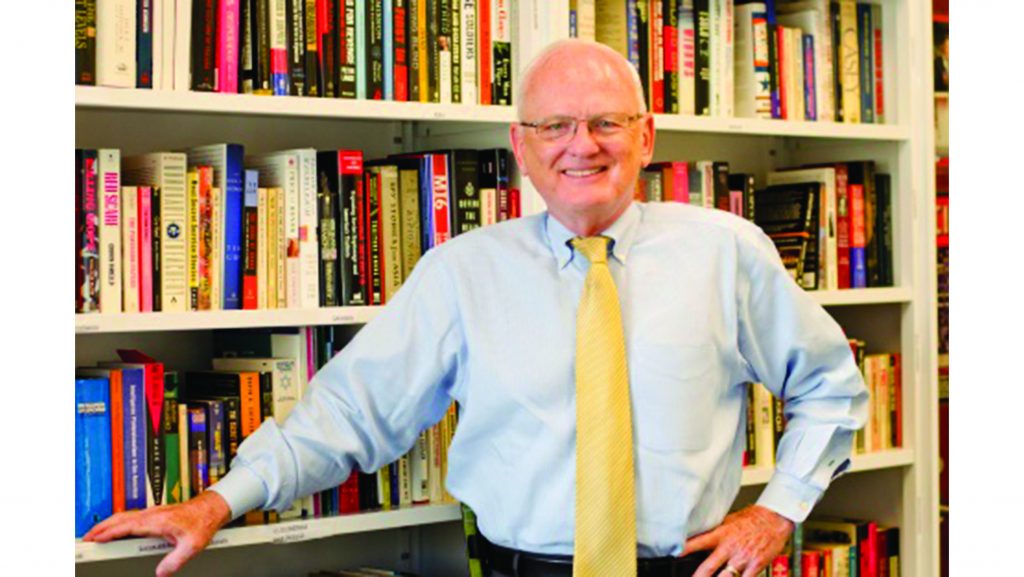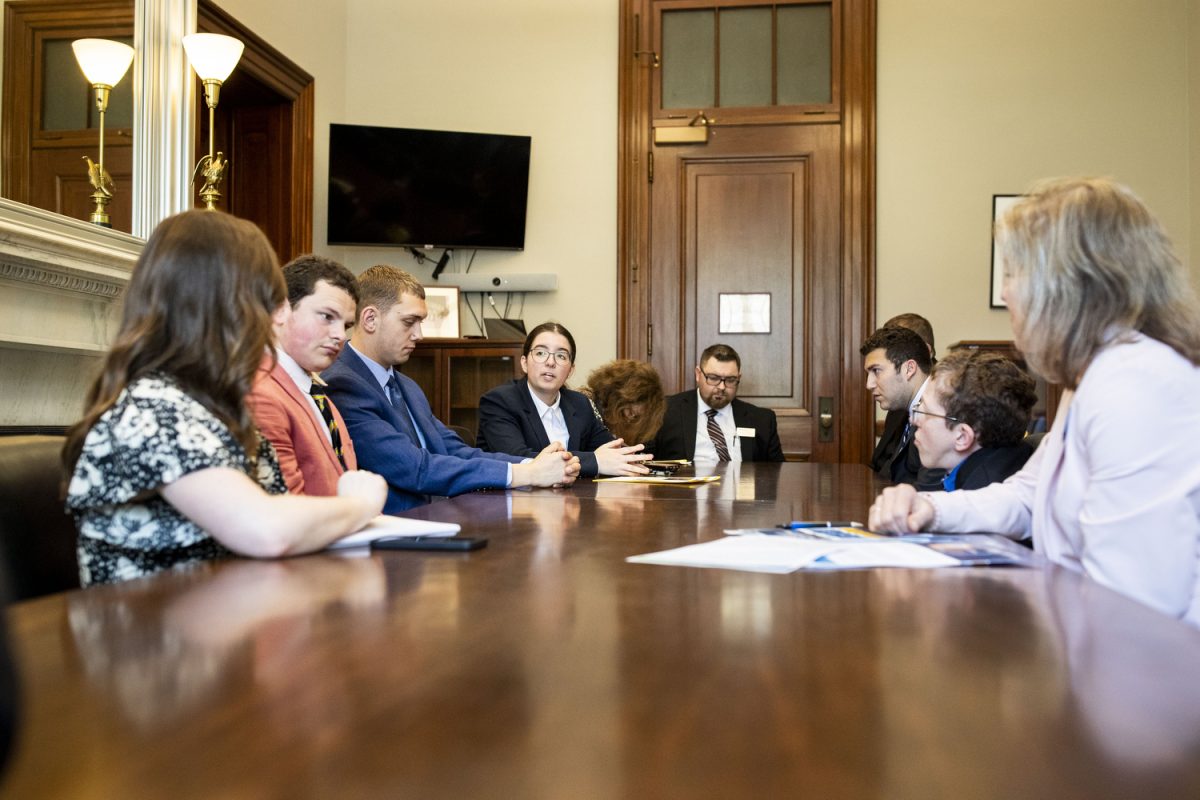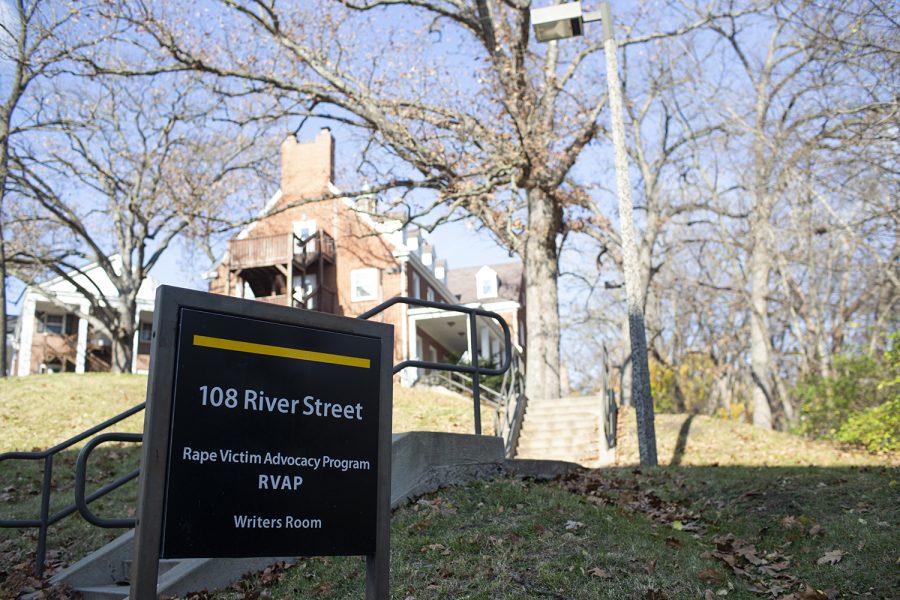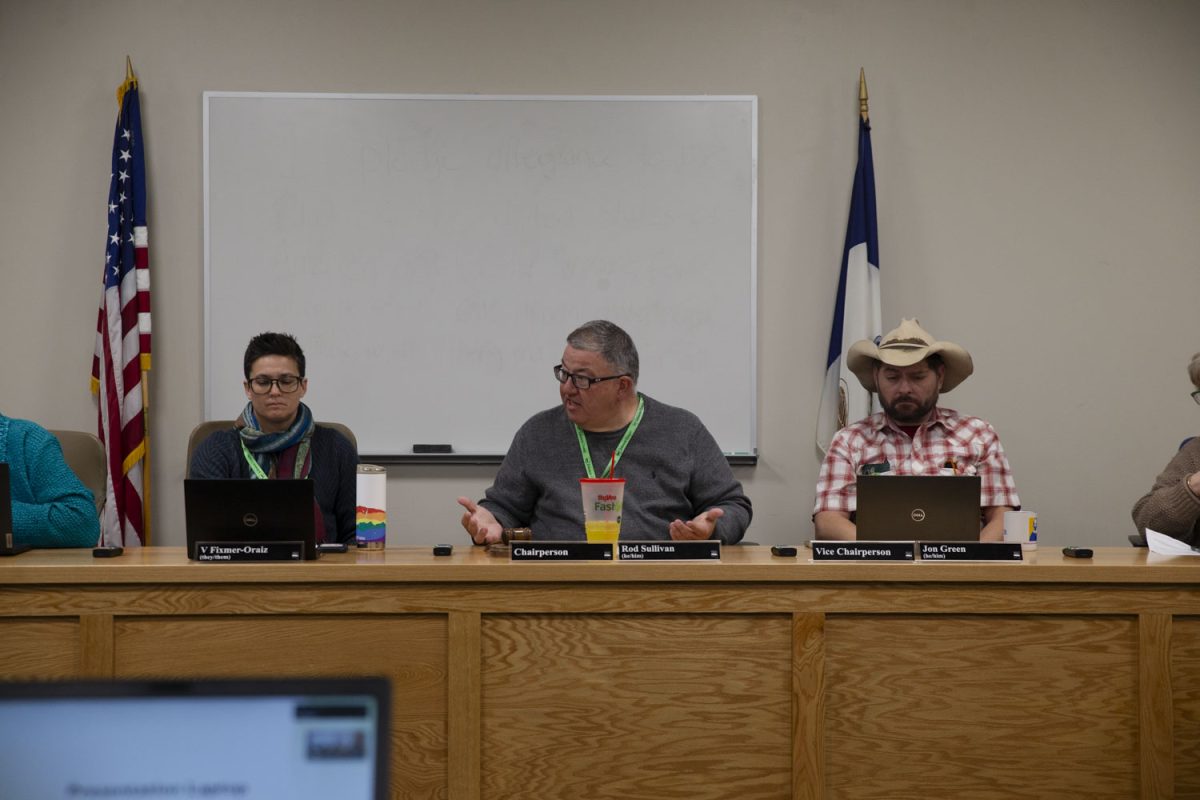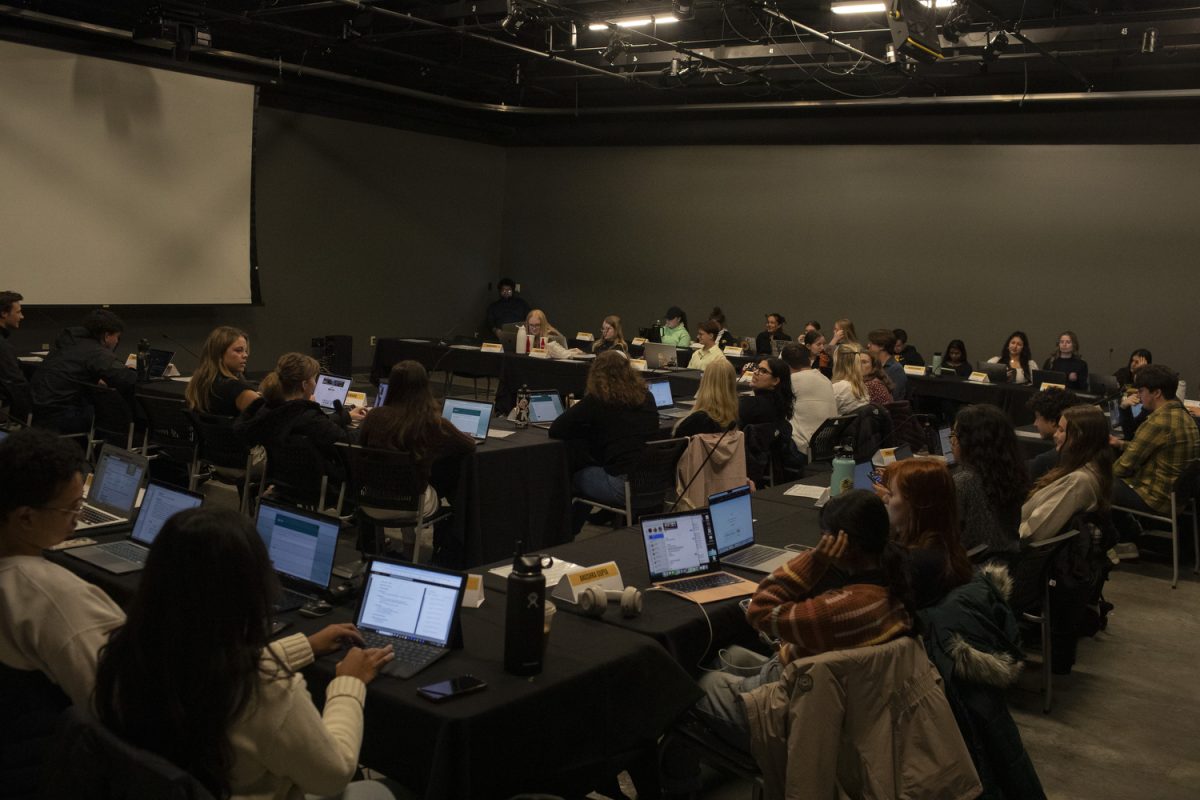In 1969, his third year at the UI College of Law, James Olson received a phone call in his dorm room. The man calling was vague and brief, wanting to discuss a potentially interesting career opportunity.
Olson was still in the Navy Reserve, so he assumed the offer was talking about coming back to active duty for a special mission.
At this time, Olson had job offers from law firms in Clinton and Atlantic. He wanted to stay in Iowa and work at one of the firms.
Olson was born and raised in West Des Moines and to this day loves his home state. He lived an idyllic childhood: raised in a supportive family, played sports after school, and had a job as a paperboy for The Des Moines Register.
After college, Olson served in the Navy. He thought it sounded exciting, and because his father had served in the Army during World War II, service and honor were important values to Olson.
“Some people just have the bug to serve,” he said. “And I had that bug.”
He accepted the caller’s invitation to a meeting in a downtown Des Moines hotel. Instead of the Navy, he found himself face-to-face with a CIA recruiter.
“It was a real shock,” Olson said. “I had no idea the CIA would be out spotting like that and would find someone like me from Iowa.”
Back then, being an Iowan recruited by the CIA made Olson was somewhat of a novelty. At the time, most recruits were from Ivy League schools. Now, Olson said, the CIA finds many Iowa recruits.
“Iowans are good people. Iowans have good values …” Olson said and laughed. “And there’s a lot of patriotism in Iowa; a lot of honor and integrity.”
He speculated he was spotted for a number of reasons. Despite majoring in economics and mathematics as an undergraduate, Olson discovered a passion for other cultures and foreign languages during his time at the UI. He learned French and Russian, which led to his acting as an interpreter in the Navy.
Olson had been excited about his future practicing law in a small county-seat town in Iowa, but the CIA promised adventure and a unique opportunity to serve. He decided to go through the CIA recruitment process, which he described as intense and elaborate.
There were incredible numbers of psychological screenings, thorough medical tests, and “very intrusive” polygraph sessions that asked about every detail of his life.
RELATED: CIA comes to UI talks careers and myths
Olson also visited Washington for interviews. He couldn’t tell anyone he knew what he was doing, so he told his friends that he was still hunting for a job. This was the beginning of Olson’s double life.
After general training, Olson thought he would work as an analyst, but a panel told Olson his psychological profile and training reports showed he would be best for operational work.
Olson said back then, people signed up for the CIA on patriotism alone and trusted the CIA would know how to use them. It was with incredible faith that Olson put aside the path he saw for himself and became an operator.
“I had not seen myself in that way but they saw something in me that I didn’t see … It turned out, they were right,” Olson said. “They knew me better than I knew myself.” Thus, began Olson’s life as a spy.
Although most operations are classified, Olson writes in his book Fairplay: the Moral Dilemmas of Spying that he is permitted to say he “served under official cover in Moscow, Vienna, and Mexico City.” His targets were “Soviet KGB, terrorists, narcotics traffickers, nuclear proliferators, North Korea, Iran, Libya, Cuba, and other threats to our nation’s security.”
“There was always a fear of being exposed …” Olson said. “Sometimes, you have diplomatic immunity, and sometimes you don’t. If you don’t, you know that if you get caught you go to prison. That kind of adds a bit of spice to your life.”
He and his wife, Meredith, who also worked for the CIA, didn’t intend on telling their children about their careers, but a mission in Vienna changed that.
Olson had received a death threat from terrorists he was working against. The letter started, “Dear Infidel Dog.” As if that wasn’t disturbing enough, the death threat referenced Olson, his wife, and their three children by name.
The couple decided to tell their oldest son, Jeremy, who was 16, that they worked for the CIA and needed his help looking out for his siblings. Olson said Jeremy accepted the responsibility and was proud of his parents.
“[Jeremy] had never suspected anything,” Olson said proudly.
He loved the excitement of operational work but knew he eventually wanted to teach. He enrolled in the CIA’s Officer in Residence program, where he could temporarily work on college campuses to discuss the importance of intelligence and national security.
At that time, George H.W. Bush created the George Bush School of Government and Public Service at Texas A&M. Olson was asked to teach there and did so for two years.
Then, he and Meredith were asked to return to Washington, but they decided to stay in Texas. Olson had discovered a passion for teaching and Meredith was in nursing school.
“[The decision] wasn’t easy. We felt a certain amount of guilt,” Olson said. “That’s our culture: to serve when asked.”
But they decided that coaching the next generation was important to serving the country. When the Bush school offered Olson a full-time faculty position, he accepted.
However, teaching at a college meant the spy couple had to come out from undercover.
They had to tell their parents, siblings, relatives, and friends that they had been lying about their lives for 30 years, which Olson described as traumatic. He also said admitting to years of overseas crimes and espionage meant travel options became somewhat limited.
Personal safety was the main consequence of coming out from undercover. Olson said he and Meredith are always cautious, because they are now potential targets.
But it’s a small price to pay, he said.
He took advantage of coming out to start a national discussion about topics in the CIA that he felt deserved attention.
He was surprised about the lack of debate in the CIA about ethics. In the war on terror, he recognized what he did “wasn’t always pretty” and felt the guidelines for operatives cannot be ambiguous.
“We need to have a debate in the country about the morality of some of the things we were doing,” Olson said. “Things like the assassinations, the waterboarding, the kidnapping, and seduction. Are these things that we, in good conscience, can do on the behalf of the American people?”
To promote the debate, he published Fairplay in 2006, and he prompts discussions on morality and ethics in his classes at the Bush school, where he still teaches.
He gets mixed feedback from the public about his work in the CIA, but he believes getting the word out and being transparent is important. He’s passionate about discussing the work that he was proud to do.
“Espionage [is] exhilarating: stealing foreign countries’ secrets on their turf, right under their noses, and not getting caught,” Olson said. “Probably more exciting than being a lawyer in a small town in Iowa.”




